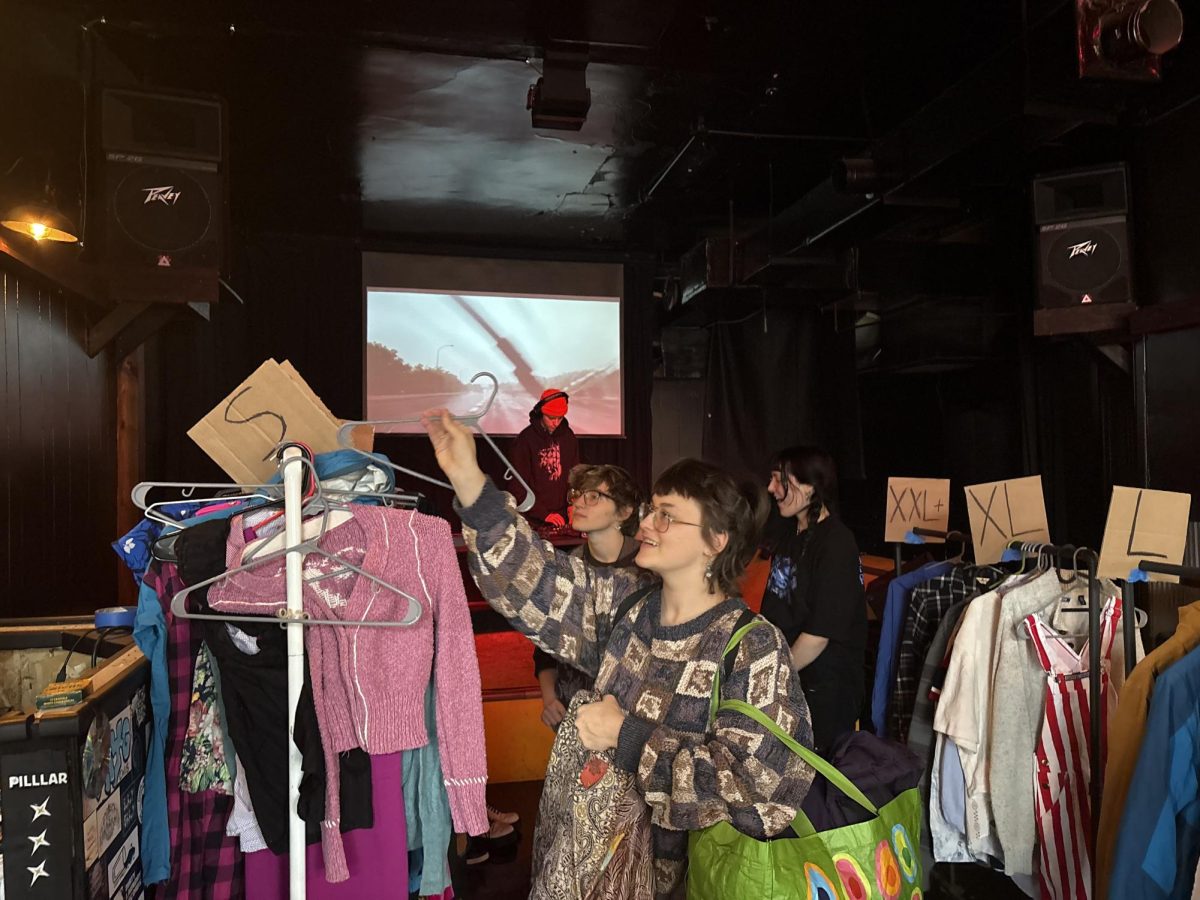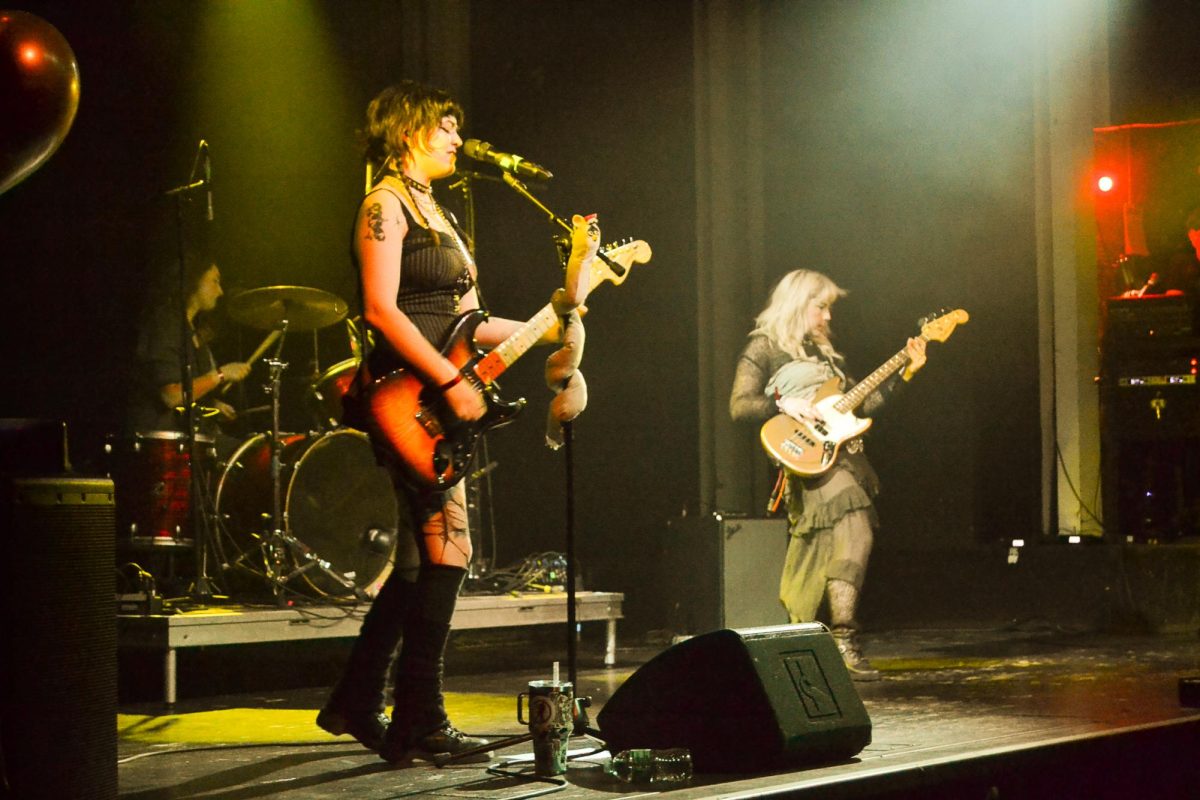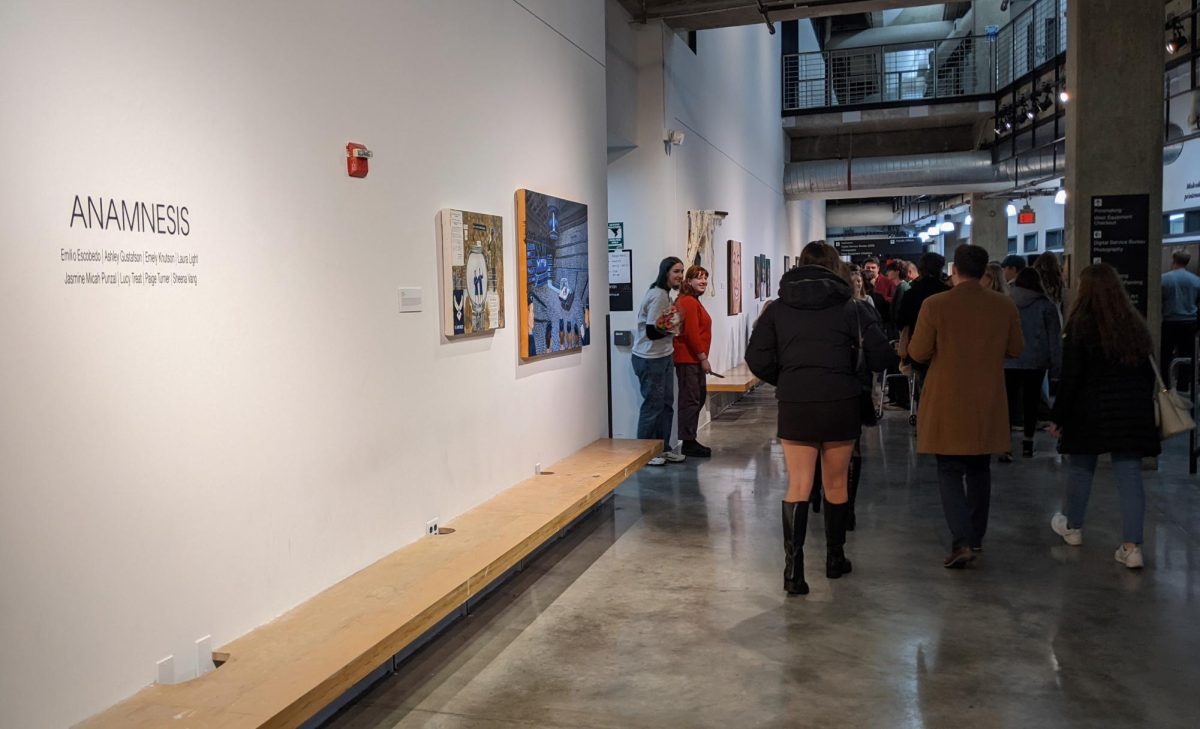How do we solve military issues like high carbon emissions, sexual misconduct and controversial National Guard deployments? To Dr. David Hamlar, Brig. Gen., the solution is to become a part of the military.
The University of Minnesota presented a moderated discussion with Hamlar covering civilian engagement with the military in Northrop Auditorium’s Best Buy Theater on Oct. 14 as part of the 2021-22 Spotlight Series. Presented in collaboration by the University Honors Program, the Institute for Advanced Study and Northrop, this year’s Spotlight Series is titled “Reconsidering Patriotism, Public Service and Civic Engagement.”
Kristen Brogdon, Northrop’s director of programming, said the series’ organizers’ first thought of this year’s theme after last year’s presentations, titled “Polarization and Identities,” talked about the ways political polarization and identity politics were affecting the 2020 election. This year, Brogdon said she wanted to expand on that idea and incorporate thoughts on the ways that the University community is using their identities to engage with the larger world.
Thursday’s discussion, “The Military and the Role of the Citizen Soldier” was moderated by Minnesota Humanities Center CEO Kevin Lindsey and focused on the arduous balance between civilians and the military.
Arriving amid both Minnesota’s celebration of Veteran Voices Month and ongoing criticism of many military practices, Hamlar used the discussion to address audience questions that ran a gamut of hot button topics. Among these topics were the military’s large budget, notable carbon emissions, the notorious sexual assault problem and the National Guard’s recent deployment to local protests.
Hamlar was the first Black brigadier general of the Minnesota National Guard and an associate professor at the University’s Department of Otolaryngology. Throughout the discussion, Hamlar described himself as “apolitical” more than once while answering the typically contrarian questions from the mostly undergraduate student audience. In one anecdote, Hamlar explained that he changed out of his uniform when visiting Minnesota Attorney General Keith Ellison’s D.C. office in an effort to avoid the appearance of any political leaning as a military professional.
No matter the question though, Hamlar brought up the same point again and again: the best way to change the military is to join the military.
Hamlar argued that if Americans want to combat the military industrial complex’s slew of issues, then they must become involved in the military and that being part of the military’s collectivist mindset helps to dismantle an overly-individualistic mindset.
Carter Yost, a second-year University Honors student who was in the audience, said the message that serving in the military is the best way to change it received mixed reactions among some members of the crowd.
After each Spotlight Series event, a cohort of Honors students discuss the content around dinner. This time, Yost said, the group questioned whether joining the military is always the best course of action.
“If I don’t think we should be going to war in the first place, why would I join that?” Yost said. “But I still want to help make change.”
Yost also said he noticed how challenging it must be to field questions about the military from college students, especially students engaged in a liberal arts education.
“It was an interesting thing because the navigation of college audiences is particularly tricky,” Yost said.
However, Hamlar’s philosophy of serving the nation extends beyond the military.
“Everybody should serve,” Hamlar said. “If not military, then Peace Corps or AmeriCorps.”
Master Sgt. Andrew Hale, the Commandant of Cadets at the University, said he agrees with Hamlar’s definition of serving and the necessity of giving back.
“I think every citizen of this country should find a way to give back to others and show that it’s not a selfish act to be an American,” Hale said in a separate interview.
In addition to the moral responsibility of giving back, Midshipman Garrett Hintze, a third-year NROTC student at the University, thinks more people serving in the military would help alleviate the disconnect between the institution and the general public.
“Prior to my time at NROTC, I had no idea how the military operated as an organization,” Hintze said.
Hintze noted that his views are opinions of his own and are not a reflection of University of Minnesota NROTC, the Marine Corps or the Department of Defense.
Throughout the discussion, Hamlar worried aloud about the nation’s minimal citizen involvement and stressed that all sorts of problems arise when the population is not actively engaged because then the military’s decisions do not reflect the desires of the population.
A recent Pew Research study found that less than 10% of the total U.S. population are veterans.
“The thing that needs to be done is keep the citizenry involved,” Hamlar said. “We need civilians in control and making decisions.”








